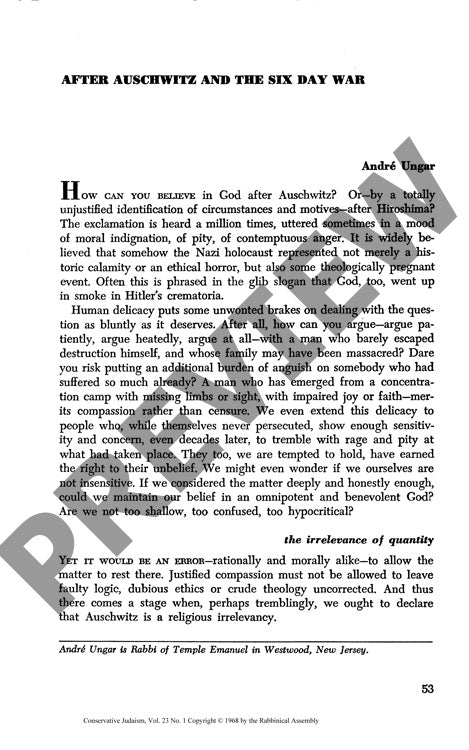After Auschwitz and the Six Day War
Couldn't load pickup availability
How can Judaism make theological sense of both unprecedented catastrophe and miraculous triumph? Two watershed moments in modern Jewish history - the Holocaust and Israel's 1967 Six-Day War victory - have sparked intense religious debate about divine intervention and suffering. Rabbi André Ungar challenges popular theological interpretations of both events through philosophical analysis and reasoned argumentation. He concludes that Auschwitz represents a "religious irrelevancy," since the scale of mass suffering poses no greater theological challenge than a single innocent death - the problem of theodicy being qualitative rather than quantitative. Similarly, he argues that Israel's lightning military victory, while politically and morally justified, carries no special theological weight. Through careful examination of logical consistency in attributing divine action to historical events, Ungar warns against selectively claiming supernatural intervention for positive outcomes while ignoring catastrophes. His analysis suggests that viable Jewish theology must transcend specific historical moments, whether tragic or triumphant, maintaining universalist principles rather than geographical or nationalist constraints. He advocates for an "open theology" that integrates philosophical, scientific and historical progress while preserving Judaism's essential character.

More Information
-
Physical Description
-
Publication Information
Published 1968
ISBN
-
Publication Credits
Andre Ungar

